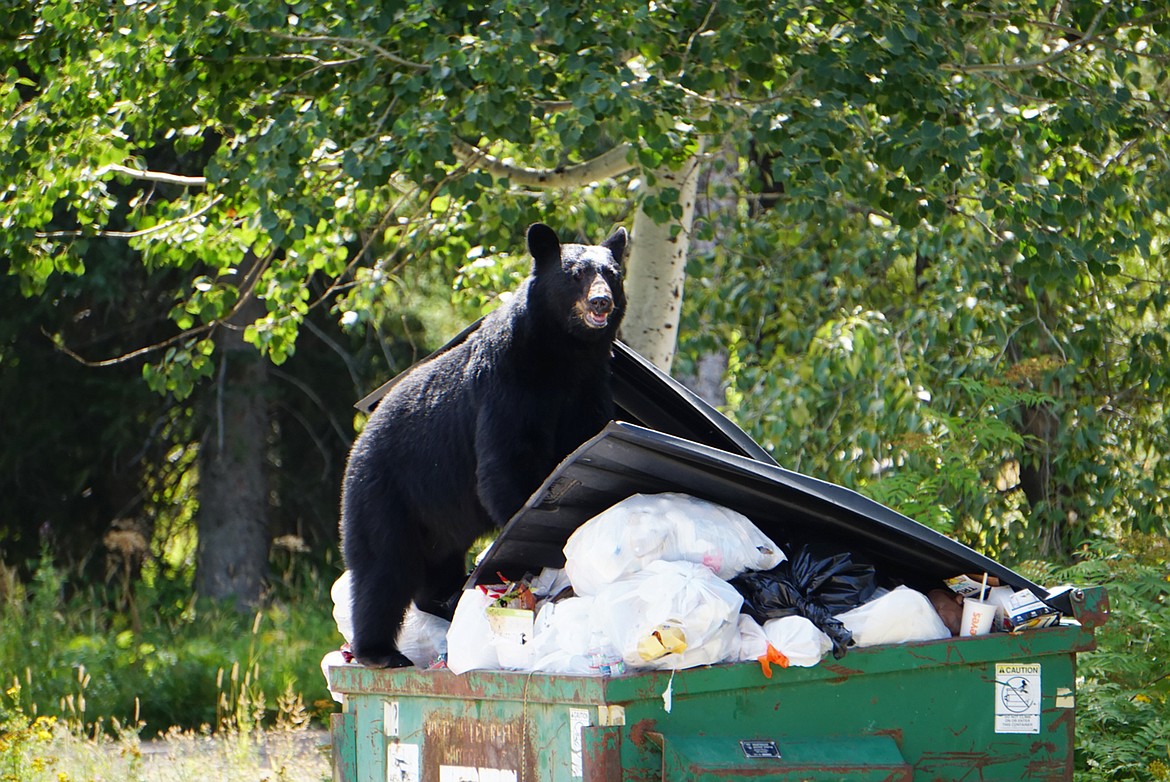Reminder issued to secure garbage following uptick in bear activity
Nineteen black bears have been getting into garbage and eating fruit in Whitefish, according to officials with Montana Fish, Wildlife and Parks.
Following an increase in bear activity, residents are being reminded to use bear-resistant garbage containers and keep containers indoors until the day of collection.
FWP is receiving numerous daily reports of bears getting into unsecured food attractants, primarily garbage and domestic fruit, across the region, but the activity is substantial in Whitefish, the agency notes.
“The bear activity in Whitefish is on the rise,” FWP Wildlife Conflict Specialist Erik Wenum said. “We’re asking for help from residents who can do their part to address this issue by properly storing their garbage and removing other food attractants such as domestic fruit. This will help improve public safety and prevent the lethal removal of these bear families.”
Bears and cubs have been spotted in Whitefish in the Wisconsin Avenue area, Dakota, Minnesota and Iowa avenues, Colorado Avenue area, Baker Avenue area, State Park and Lion Mountain roads area, Wisconsin Avenue area, Ninth Street area and East Lakeshore Drive area.
FWP also recently captured and moved a grizzly bear that was in the West Eighth and Ninth streets area near downtown.
The City of Whitefish has an ordinance that requires homeowners who have individual trash cans assigned to their residence to store the garbage can in an enclosure that is secure from animals or they must have an animal-resistant container. Additionally, garbage cans are to be taken to the curb for pick up no earlier than 4 a.m. the day of collection and must be taken back to the residence by 7 p.m. the same day.
Trash cans can not remain at the curb. Fines for those who are non-compliant can be up to $500.
Most human-bear conflicts involve bears protecting their young or a food source, FWP officials note. The overwhelming majority of human-bear encounters do not involve conflict and bears seldom attack or injure people.
Bears that gain rewards from human food sources, such as garbage and domestic fruit, can become food-conditioned, which means they lose their natural foraging ability and pose an increased risk to human safety. Food rewards can also lead wildlife to become habituated to people, another increased risk to human safety. Both food conditioning and habituation often lead to euthanizing an animal for safety reasons, officials note.
FWP can attempt to capture and move bears, but trapping is difficult in urban areas. If a cub and a mother are separated by a trap that creates a significant public safety threat. It’s also difficult to lure a bear into a trap when there are food sources such as garbage in the area.
A Facebook page named Flathead Fruit Gleaning works to connect residents who want to pick up fruit with those who need fruit picked up. Learn more at https://www.facebook.com/FlatheadFruitGleaning/. Residents can donate fruit to the Grizzly and Wolf Discovery Center in West Yellowstone by dropping off the fruit at the FWP office in Kalispell the week of Sept. 20, from 9 a.m. to 5 p.m. Monday through Friday.
To report grizzly bear activity in Flathead County, call FWP bear management specialists at (406) 250-1265. To report black bear and mountain lion activity in Flathead County, call (406) 250-0062.
For more information on being safe around bears, visit https://fwp.mt.gov/conservation/species/bear


